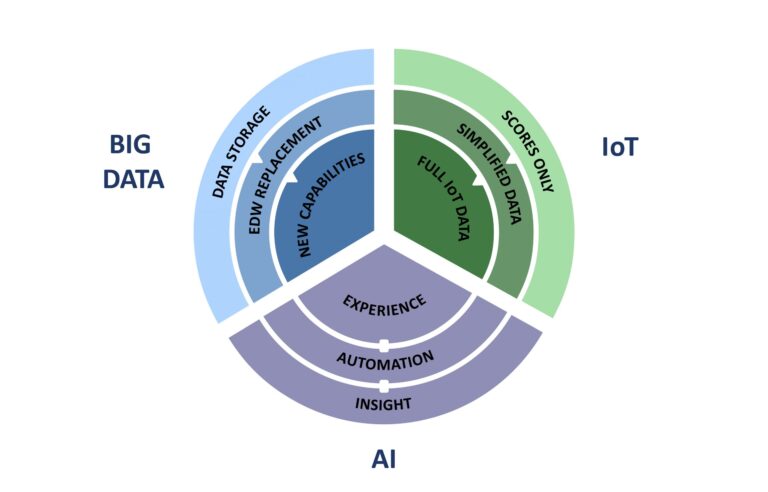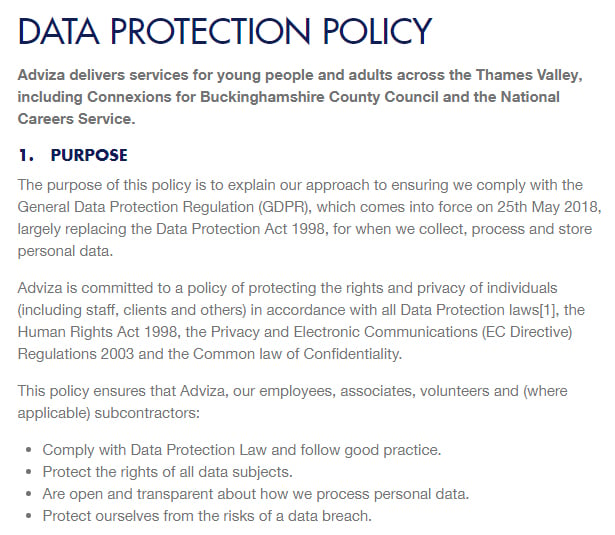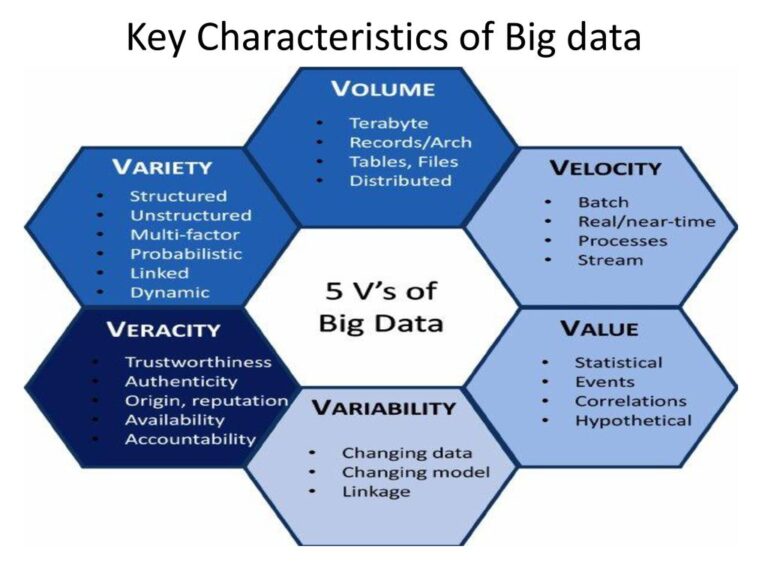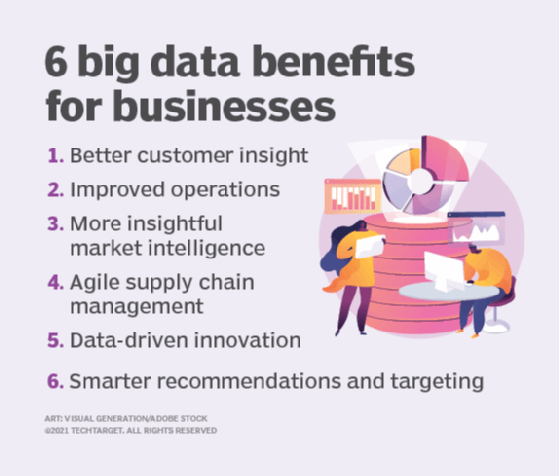Which Are The 4 Basic Principles Of Data Privacy?
Data privacy is a concept that has become increasingly important in the digital age, as data is collected, stored, and shared at an unprecedented rate. The four basic principles of data privacy are collection limitation, data quality, purpose specification, and use limitation. These principles are designed to ensure that data is collected, used, and disclosed responsibly and that individuals’ privacy is respected. Collection limitation requires that data collection is limited to what is absolutely necessary for a given purpose, while data quality ensures that collected data is accurate, complete, and up-to-date. Purpose specification requires that collected data be used only for the purpose for which it was collected, and use limitation requires that data not be used for any other purpose without explicit consent. These principles form the foundation of data privacy and are essential for protecting users’ rights and ensuring responsible data handling.
Definition of Data Privacy
Data privacy is defined as the right of an individual to control or influence how their personal information is used and shared. This includes the right to access, delete, and restrict the use of their personal information. Data privacy also encompasses the privacy of data created and stored by businesses or organizations. This includes the right to opt out of data collection and use, the right to be informed about how their data is used, and the right to have their data securely stored and destroyed when no longer needed. Data privacy is an essential part of a healthy digital society and is a key concept in data protection.
Benefits of Data Privacy
Data privacy is becoming increasingly important in today’s digital world. The benefits of data privacy are numerous, from protecting personal information to preventing data breaches and cyberattacks. It is essential to understand the importance of data privacy to ensure the security and safety of personal data. Data privacy helps individuals keep their information safe from malicious actors, and it helps businesses protect their customers’ information. With data privacy, companies can develop trust with their customers, as customers feel confident in the security of their data. Data privacy also allows companies to remain compliant with applicable laws and regulations that protect consumers and their data. Lastly, having secure data privacy practices can help businesses avoid hefty fines and legal issues. Data privacy is a crucial part of ensuring the security of both customers and businesses.
Types of Data Privacy
Data privacy, also known as information privacy, is the protection of personal data collected by companies, organizations, and governments. This type of privacy is essential for protecting an individual’s personal data and is regulated by a number of laws and regulations. There are several types of data privacy, each with its own unique characteristics.
The first type is the privacy of communications, which is the protection of the communication methods used by individuals and organizations. This includes email, voice, text, and video communications. This type of privacy is important to ensure that sensitive information is not shared without permission.
The second type is the privacy of data storage, which is the protection of the data that an individual or organization stores. This includes personal, financial, or medical information stored on hard drives, computers, or servers. This type of privacy is necessary to ensure that information is kept secure and private.
The third type is privacy of data use, which is the protection of data that is used by individuals and organizations. This includes data collected for marketing, analytics, and advertising purposes. This type of privacy is important to ensure that data is used only for its intended purpose and is not misused or abused.
Data privacy is an important part of protecting an individual’s identity and personal information. It is important to understand the different types of data privacy and how they can be used to protect an individual’s data from misuse or abuse.
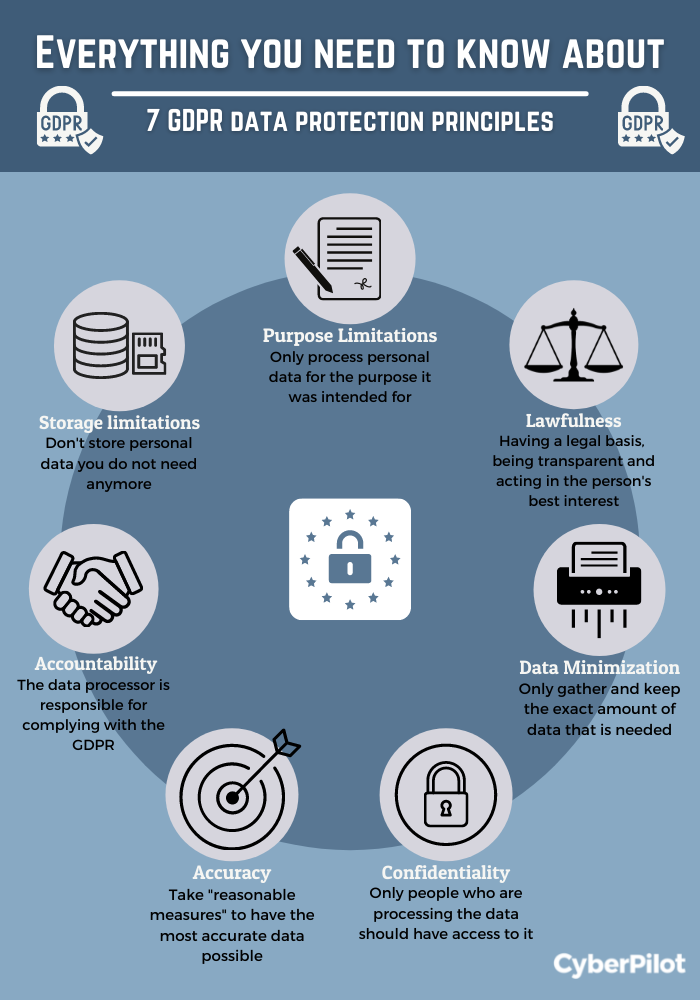
Principles of Data Privacy
Data privacy is the concept of protecting the data of individuals from unauthorized access. It involves protecting data from unauthorized use, manipulation, or deletion. It also involves ensuring that organizations are transparent about how the data is collected, stored, used, and shared. Data privacy principles are used to ensure that the data collected, stored, and used is done in a way that is respectful of the individual’s privacy. Principles of data privacy include confidentiality, integrity, and availability; data minimization; data accuracy; data security; notice and consent; and purpose limitation. By adhering to these principles, organizations can ensure that the data they collect is treated with respect and used for the intended purpose.
Strategies for Implementing Data Privacy
Data privacy is becoming an increasingly important consideration for businesses of all sizes. Implementing effective data privacy strategies can be the difference between success and failure. Here are a few ways to ensure your organization is compliant with data privacy regulations:
1. Train employees on data privacy best practices. Ensure everyone understands the importance of data privacy, and what their individual roles are in protecting it.
2. Create a privacy policy and be transparent about its contents. Let customers know how their data is being used and protected.
3. Use secure data storage and transmission methods. Implement strong encryption and access control measures to protect data while in transit and at rest.
4. Monitor data access and usage. Set up an audit trail to monitor who is accessing and using the data.
5. Monitor external threats. Take proactive steps to prevent data breaches and other external threats.
By following these strategies, your business can ensure it is compliant with data privacy regulations and protect customer data. Doing so will help you gain customer trust and loyalty.
The Impact of Data Privacy on Businesses
Data privacy is becoming increasingly important for businesses of all sizes. As organizations gather more data on their customers and employees, the risk of data breaches increases. Data privacy helps protect customer information and safeguard the data that organizations collect, store, and use. It also helps ensure compliance with local, national, and international regulations. Without proper data privacy, organizations could face hefty fines, reputational damage, and loss of customer trust. Having a data privacy policy and incorporating data privacy into business processes can help protect customer data while still allowing organizations to use the data to improve their products and services. By understanding the impact of data privacy on businesses, organizations can make informed decisions to protect their customers and their own assets.
FAQs About the Which Are The 4 Basic Principles Of Data Privacy?
1. What are the four basic principles of data privacy?
The four basic principles of data privacy are transparency, control, security, and accountability.
2. How can I ensure that my data privacy is being protected?
You can ensure that your data privacy is protected by following the four basic principles of data privacy, as well as regularly auditing your data security practices and conducting periodic data privacy assessments.
3. What are the consequences of not following the four basic principles of data privacy?
The consequences of not following the four basic principles of data privacy can include fines, loss of customer trust, and damage to your reputation. In addition, you may be held liable for any data breaches resulting from your lack of adherence to the principles.
Conclusion
The 4 basic principles of data privacy are transparency, security, purpose limitation, and accountability. These principles are essential to protecting individuals’ data privacy rights and ensuring that organizations collecting and using personal data are doing so responsibly. As technology continues to evolve, data privacy must continue to be a priority, and these four principles serve as the building blocks of effective data privacy management.

